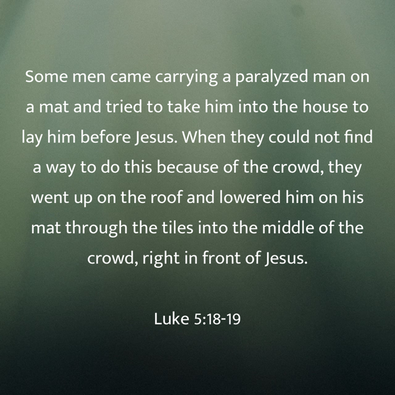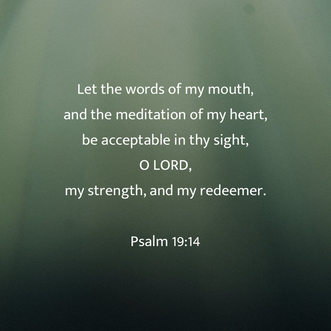|
Good morning! We're so glad you decided to join us today! When we meet in person, we share our joys and concerns together. If you have any you would like to share, you can add them in the comments. This week's lesson is Psalm 84. Lesson Context Psalm 84 is in Book III of the Psalter. A total of 11 Psalms are written "of the Sons of Korah." Our book says this could mean either that the songs were written by those descendants of Korah, or that the songs were written for them. The song may have been written for a pilgrimage to the temple, maybe for a new-year festival. However, this is based on Psalm 84:5, and is quite speculative. Lesson Opening Appeal: Verses 1-3 In verse 1, the Hebrew adjective translated lovely is more commonly rendered "beloved." It suggests that this poem will focus on love or attachment. Here, it seems to be the high degree of fondness the writer has for the Lord's dwelling place. The word translated dwelling place is literally translated tabernacles or tents. For the Israelites in the desert, this was where God lived. King David's son Solomon then built the temple in Jerusalem. Tabernacles is probably referring to different parts of the structure, not many different locations. In the NIV translation, the first verse is addressed to the Lord Almighty. In other versions, this is translated as the Lord of Hosts. Generally, this is meant to celebrate God's power in various contexts. Our book says that the "hosts" in other translations may refer to angelic beings who serve the Lord as he directs (Psalm 148:2; Hebrews 1:13-14), or it may refer to stars, planets, and other heavenly bodies that he created (Nehemiah 9:6). In verse 2, the writer's soul, hearts, and flesh are all mentioned to indicate that their entire being is wound up in yearning for the presence of God. The writer talks about the sparrow that has found a place near God's altar. This might be the same place that birds today find to nest: high up in the rafters of the tabernacle. The birds could be present for every sacrifice without ever leaving home. The writer seems almost jealous that the birds are able to build nests within the Lord's home. The writer describes the Lord Almighty as my King and my God. This suggests closeness, while the title emphasizes God's greatness. This is the great paradox of faith: the Creator of everything, seen and unseen, desires undivided relationships with those created in his image. In God's Presence: Verses 4-7 The opening verses talked about the author yearning to be in God's presence. The Israelites thought about being in God's presence by being at the Temple. We don't think about only being in God's presence when we are in a church building. But we can say something about our gathering places: when ministry through faithful preaching and teaching of God's Word and serving one another are carried out within the walls of the building, it is a blessed place to be. Why then shouldn't a person anticipate being in the place of worship as the writer of this psalm did? Based on 1 Corinthians 6:19, we can think of our bodies as temples of God's Holy Spirit. What self-evaluation can you undertake to ensure that you are God's "house"? Verse 6 talks about passing through the Valley of Baka. Our book says there is no place in recorded scripture with that name. The word translated Baka refers to a certain kind of tree. One thought is that the Valley of Baka is referencing a narrow valley near Jerusalem. Another thought is that this is a figurative description of the spiritual dryness that is relieved by arriving at the Lord's house. The writer says our pilgrims, "go from strength to strength." Our book notes that the word translated strength here is a different word than that in verse 5. This is meant to be a repetition of terms for emphasis. We see that the pilgrims are upheld by God. They become stronger as they walk longer with God. Eventually, they will reach Zion, and live with God forever. Closing Appeal: Verses 8-12 Verse 8 is a repeated appeal for God to listen. It emphasizes the full range of God's power. His attending to an entire nation is set side by side with the psalmist's conviction that God is willing and able to hear the prayer of an individual. The writer says the Lord is, "a sun and shield." Our book notes that saying a sun is very important. God is a spiritual light in the darkness. (If the word had been the sun, it would imply worshiping the sun, like many pagan practices of the time.) God rewards those who seek his ways. What "good thing" that you have received from God can and/or should be shared with others? Finally, we reach the heart of the psalm. "Lord Almighty, blessed is the one who trusts in you." While fervor for the Lord's temple and annual pilgrimage feasts can indicate that a person's heart is yielded to God, such excitement is not enough. Yes, it is good to be in the house of the Lord, but that is not an end in itself. The key is trusting in the Lord of the house, living in daily fellowship with him. Conclusion While the psalmist was quite passionate about being in the Lord's house, readers today may wonder whether such passion is fitting for Christians. To this we can answer yes in terms of the need to gather with other Christians while at the same time remembering that church buildings of the New Testament era are not equivalent to the temple of the Old Testament era. More than location, the psalmist's heart was set on spending time with God. It was God's presence that made the place of worship the sacred place that it was. While our houses of worship today bear little to no resemblance in form and function to the temple of in Jerusalem, the psalmist's longing to be in God's presence still stands. But how seriously do we take the truth that we are always in God's presence, given that we are the new covenant temple? Christians long to be with Jesus and in his presence for eternity, and that is a good thing. But as we anticipate that great day, what a tragedy it would be to not draw on the good thing we have now: the indwelling of the Holy Spirit. Prayer Father, thank you for the presence of the Holy Spirit! We are humbled that you have promised to dwell with those who turn to you in simple trusting faith. We thank you for your presence with your people when we gather in worship. In Jesus' name we pray. Amen. Benediction As we are still reading from the Psalms, today's benediction is from the Psalter. Next week's lesson will be on Psalms 149:1-5 and Psalm 150.
0 Comments
Leave a Reply. |
AuthorWe are a small, rural Presbyterian church in southwestern Pennsylvania. Archives
July 2024
Categories
All
|



 RSS Feed
RSS Feed